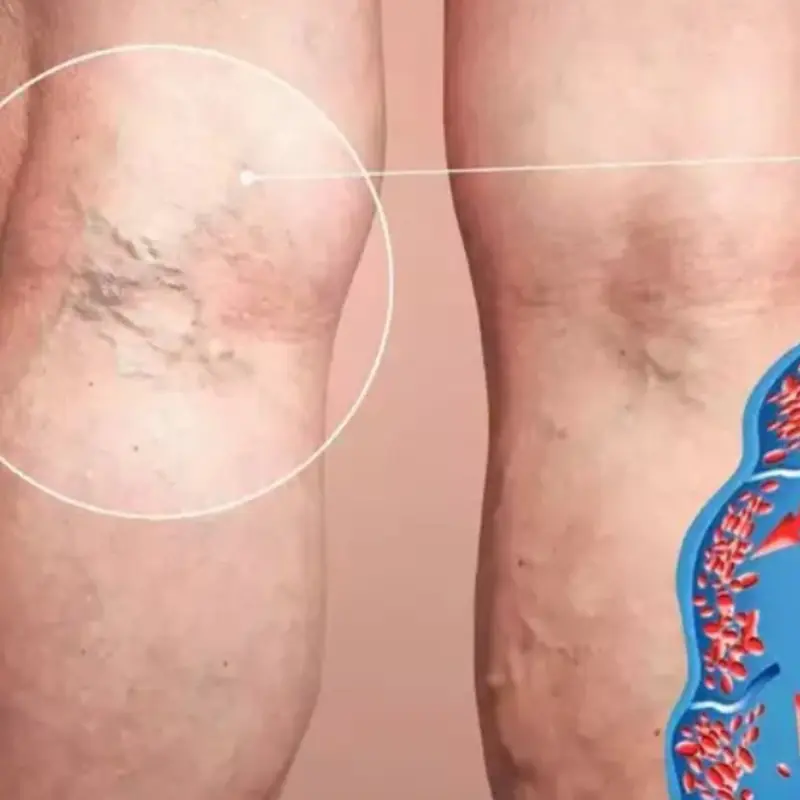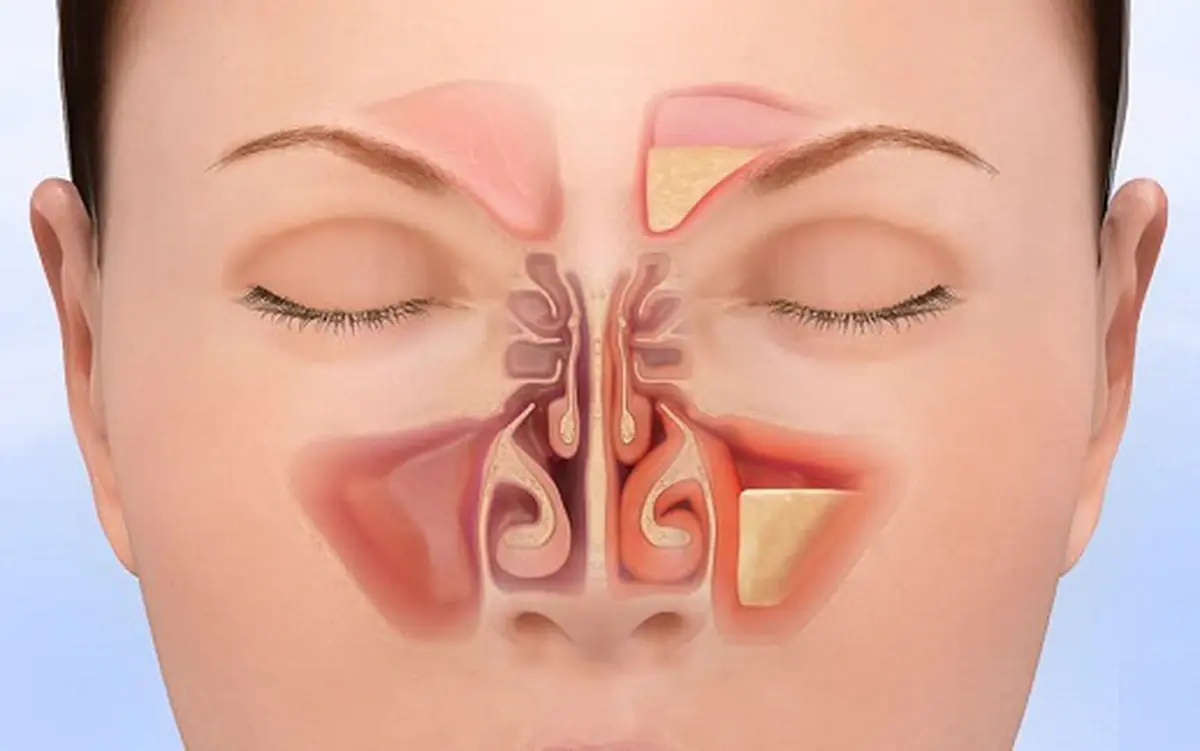
101-Year-Old Nutrition Professor Shares 7 Rules for Longevity and Health — Still Drives Around the World by Himself
101-Year-Old Nutrition Professor Shares 7 Rules for Longevity and Health — Still Drives Around the World by Himself
If you're looking for secrets to a long and healthy life, this 101-year-old doctor might just have the answers.
Dr. John Scharffenberg, a native of California, is over 100 years old and still healthy enough to drive himself around the world. He's also a YouTube star. He believes his longevity is the result of his lifestyle. Dr. Scharffenberg holds a Master’s degree in Public Health from Harvard University and is a visiting professor at the School of Public Health at Loma Linda University. He has traveled globally to lecture on how simple lifestyle changes can lead to a longer life.
He doesn’t believe genetics played a major role in his long life. His mother died at 60 from Alzheimer’s, and his father had a heart attack at 76. He has outlived both of his siblings and attributes this to being far more active than they were.
So, what are the strict rules that have helped him live such a long, fulfilling life at 101? Let’s take a look.
1. Don’t smoke
Dr. Scharffenberg says he’s never smoked a cigarette in his entire life. And if you want to live as long as he has, you shouldn’t either.
Smoking is a harmful habit that raises the risk of cancer, heart attacks, and strokes, and significantly reduces lung capacity.
2. Don’t drink alcohol
In an interview with the YouTube channel Viva Longevity, he shared that he doesn’t drink alcohol and doesn’t believe in the idea that “a glass of wine a day is good for you.”
He believes that even small amounts of alcohol pose health risks and should be avoided altogether.
3. Limit sugar consumption
This might be bad news for those with a sweet tooth, but Dr. Scharffenberg does his best to keep sugar out of his diet. He even adjusts recipes to avoid it.
He explains that high sugar intake increases the risk of heart disease and other health problems, including weight gain and tooth decay.
Studies show the average American consumes around 22 teaspoons of added sugar daily, which is linked to obesity, heart disease, and other issues.
The American Heart Association recommends no more than 6 teaspoons of added sugar per day for women and 9 for men.
4. Exercise regularly
Though nutrition is his specialty, Scharffenberg says that “exercise is even more important” than diet. He emphasizes that staying active, particularly from age 40 to 70, brings significant health benefits.
He gardens regularly and says walking is another great form of exercise.
5. Watch your weight
You don’t need to obsess over your weight, but Dr. Scharffenberg believes it’s important to maintain a steady weight over the years. He recommends intermittent fasting, avoiding snacks, and sticking to large, whole-food-based meals.
One reason he believes he outlived his siblings is because he practiced intermittent fasting and ate only two meals a day: breakfast and lunch. He skips dinner, stopping all food intake by early afternoon and not eating again until 6:30 a.m. the next day.
According to the U.S. National Institutes of Health, being overweight or obese raises the risk of type 2 diabetes, high blood pressure, heart disease, and cancer. The World Health Organization warns that even a slight weight gain can increase health risks.
6. Limit meat consumption
While some may find vegetarianism difficult, Dr. Scharffenberg believes it’s one of the healthiest ways to maximize longevity. He has avoided meat since the age of 20, instead eating fruits, vegetables, potatoes, macadamia nuts, and other plant-based foods. He still consumes dairy and eggs.
7. Avoid saturated fats
Saturated fats are found in many popular foods, but they offer little health benefit. Dr. Scharffenberg advises reducing them as much as possible. The American Heart Association recommends that saturated fat make up less than 6% of daily calories—which basically supports a vegetarian diet, according to him.
Limiting saturated fat helps lower the risk of conditions like high blood pressure and high cholesterol.
Dr. Scharffenberg notes that cardiovascular diseases—heart attacks and strokes—are the leading causes of shortened lifespan. He spreads this message through his YouTube channels, which have attracted millions of views.
News in the same category


If You Have Poor Circulation, Cold Feet or Varicose Veins, Start Doing these 6 Things
Simple daily habits can help prevent varicose veins from getting worse.

Pain on the left side of the body: What might it indicate?
Left-side body pain can signal anything from minor issues to serious conditions.

Doctors warn that hearing your heartbeat while lying down may indicate an underlying health issue
Hearing your heartbeat at night? Doctors say it could be a warning sign

Waking Up With Bruises on Your Legs Could Be a Serious Warning Sign
Waking Up With Bruises on Your Legs Could Be a Serious Warning Sign

Bladder Cancer: 5 Subtle Early Symptoms to Watch Out For
Bladder Cancer: 5 Subtle Early Symptoms to Watch Out For

Why Your Throat Feels Sticky: The Real Causes of Mucus
Why Your Throat Feels Sticky: The Real Causes of Mucus

Research identifies a potential developmental link related to autism
A study suggests a potential link to autism development

Fa.tty liver dis.ease: Causes, warning signs and how to reverse it
Fa.tty liver explained: Causes, symptoms and effective treatment options

Doctors Issue Warning: These 4 Morning Symptoms May Signal Lung Cancer Is Advancing
Doctors Issue Warning: These 4 Morning Symptoms May Signal Lung Cancer Is Advancing

Why You Often Need to Poop Right After Eating — Explained by Doctors
Why You Often Need to Poop Right After Eating — Explained by Doctors

Doctors reveal which blo.od type appears to have the lowest can.cer risk
Doctors identify the blo.od type linked to the lowest can.cer risk

This little-known vegetable is as nutritious as bird’s nest and rich in calcium
An overlooked vegetable packed with nutrients and remarkably high in calcium

A natural drink that helps relieve mucus, dry cough, sinus congestion and sore throat
This natural drink may help ease mucus, cough and sinus discomfort

How to get rid of phlegm and mucus in your chest and throat
How to get rid of phlegm and mucus in your chest and throat

Doctors reveal that eating walnuts causes
Eating walnuts regularly can bring a wide range of health benefits

Beet & Citrus Juice: A Nutritious Drink Packed With Antioxidants (Not a ‘Cleanse’)
You don’t need to believe in magic drinks to enjoy beet juice.

The Fruit the World Values More Than Cordyceps—Abundant Across Asia, Yet Largely Ignored at Home

Top 10 “Healthiest Foods in the World” — Many You Still Think Are Harmful
These foods were found to benefit not only cardiovascular health but also provide clear advantages for the nervous system and cognitive function.

Cold Mornings and Stroke Risk: The 3-Minute Rule Most People Ignore
A single rushed movement after waking up can trigger a stroke.
News Post

Cucumbers are delicious and healthy, but these 4 groups of people should avoid eating them

If You Have Poor Circulation, Cold Feet or Varicose Veins, Start Doing these 6 Things
Simple daily habits can help prevent varicose veins from getting worse.

Pain on the left side of the body: What might it indicate?
Left-side body pain can signal anything from minor issues to serious conditions.

The secret to completely winning a man’s heart, so he stays obsessed for life and never craves ‘something new
How emotional connection keeps love strong and lasting over time

The Unseen War: Why Our Social Networks Are Failing Us (And What We Can Do About It)
In an age defined by hyper-connectivity, the irony is stark: despite our endless likes, shares, and connections, a silent crisis of social isolation and relational fragility is brewing beneath the surface.

Sleeping With Garlic by Your Bed? There’s a Hidden Reason
Sleeping With Garlic by Your Bed? There’s a Hidden Reason

If you notice these 3 things in a hotel room, check out immediately

Why Sleeping With One Foot Outside the Blanket Actually Works
Why Sleeping With One Foot Outside the Blanket Actually Works

What happens to your body when you stop having inti.mate relationships?
What really happens to your body when inti.macy is absent?

Doctors warn that hearing your heartbeat while lying down may indicate an underlying health issue
Hearing your heartbeat at night? Doctors say it could be a warning sign

Waking Up With Bruises on Your Legs Could Be a Serious Warning Sign
Waking Up With Bruises on Your Legs Could Be a Serious Warning Sign

Bladder Cancer: 5 Subtle Early Symptoms to Watch Out For
Bladder Cancer: 5 Subtle Early Symptoms to Watch Out For

Why Your Throat Feels Sticky: The Real Causes of Mucus
Why Your Throat Feels Sticky: The Real Causes of Mucus

Research identifies a potential developmental link related to autism
A study suggests a potential link to autism development

Fa.tty liver dis.ease: Causes, warning signs and how to reverse it
Fa.tty liver explained: Causes, symptoms and effective treatment options

Doctors Issue Warning: These 4 Morning Symptoms May Signal Lung Cancer Is Advancing
Doctors Issue Warning: These 4 Morning Symptoms May Signal Lung Cancer Is Advancing

Why You Often Need to Poop Right After Eating — Explained by Doctors
Why You Often Need to Poop Right After Eating — Explained by Doctors

Doctors reveal which blo.od type appears to have the lowest can.cer risk
Doctors identify the blo.od type linked to the lowest can.cer risk

This little-known vegetable is as nutritious as bird’s nest and rich in calcium
An overlooked vegetable packed with nutrients and remarkably high in calcium

A natural drink that helps relieve mucus, dry cough, sinus congestion and sore throat
This natural drink may help ease mucus, cough and sinus discomfort
